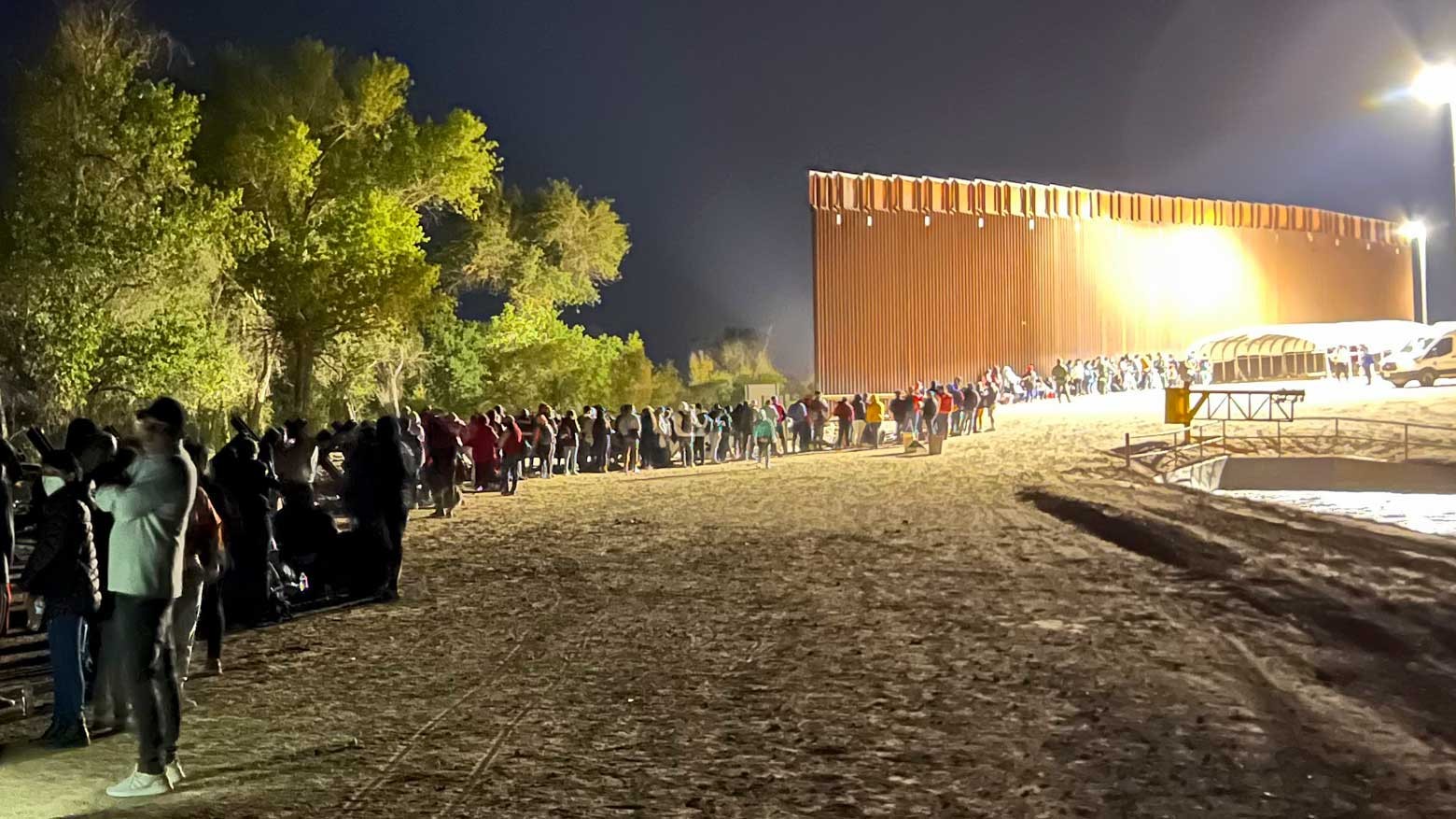Every night at 3 a.m. on the United States-Mexico border in Yuma, Arizona, hundreds of migrants from around the world line up next to the brown, rusted steel of the wall dividing the two countries. Towering, industrial floodlights sit on top of the 10-meter wall, emitting the only visible light. Most migrants look exhausted and worried -- their socks are wet from crossing the Colorado River and a few migrants huddle by campfires to keep warm.
Building the wall again?
Many areas along former President Donald Trump's border wall remain unfinished, with migrants passing through gaps caused by architectural and geographical challenges. In Yuma, migrants surrender themselves to Customs and Border Patrol at the port of entry so they can be detained, processed, and apply for asylum. Most come with their families and are fleeing oppressive governments or the war in Ukraine to seek better economic opportunities in the United States.
Since October 2021, the US Border Patrol reported an unprecedented 2.2 million migrant encounters at the Mexico border. In response to this immigration influx and mounting criticism, President Joe Biden has quietly resumed construction to fill these gaps of the wall. The highly contested issue of border security plays a critical role in securing congressional victories -- for both parties -- and spurred the Biden border policy compromise.
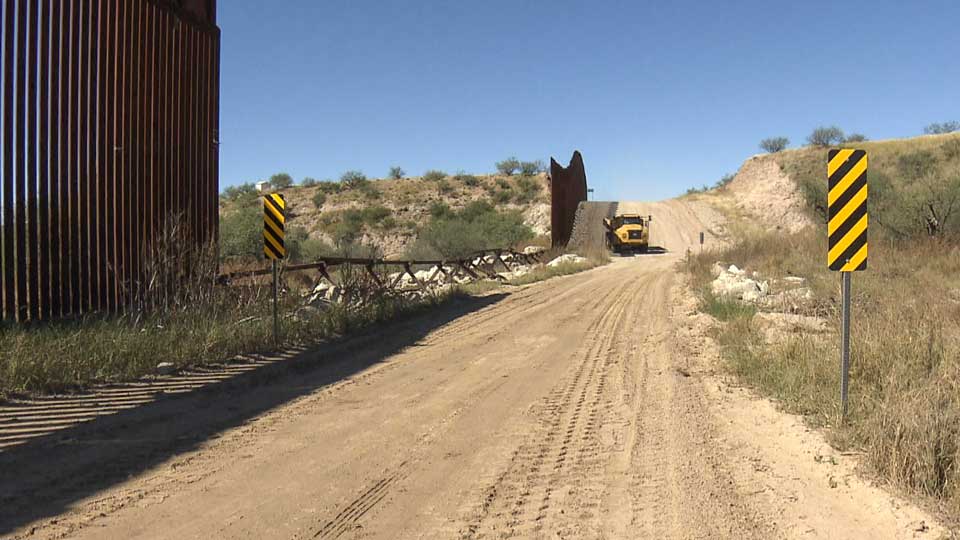
In his 2020 presidential campaign, Biden promised voters to "not build another foot of wall." The day after he took office in January 2021, construction was halted.
But just a year later, the Customs and Border Patrol (CBP) website posted announcements about "remediation projects." In reality, many of these projects contained elements of further border construction. In response to questions about this apparent about-face, White House Press Secretary Karine Jean-Pierre said, "We are not -- we're not finishing the wall. We are cleaning up the mess the prior administration left behind in their… failed attempt to build a wall."
Politicization of the wall
Democratic Sen. Mark Kelly of Arizona takes responsibility for the recent federal efforts to fill the gaps in the wall. Despite being a member of the president's own party, Kelly repeatedly said he disapproved of the Biden administration's handling of immigration and for the last two years has requested more resources from the White House.
"I think it's very fair to say that Washington, D.C., has failed Arizona and other border states," he tells NHK. "It's a mess and more needs to be done. That's why I've worked to appropriate more money. So, there's more money available in Arizona to hire more Border Patrol agents and more technology, and build and fix barriers where they make sense." In November, Kelly won reelection despite fervent criticism about border security from his opponent, GOP newcomer Blake Masters.
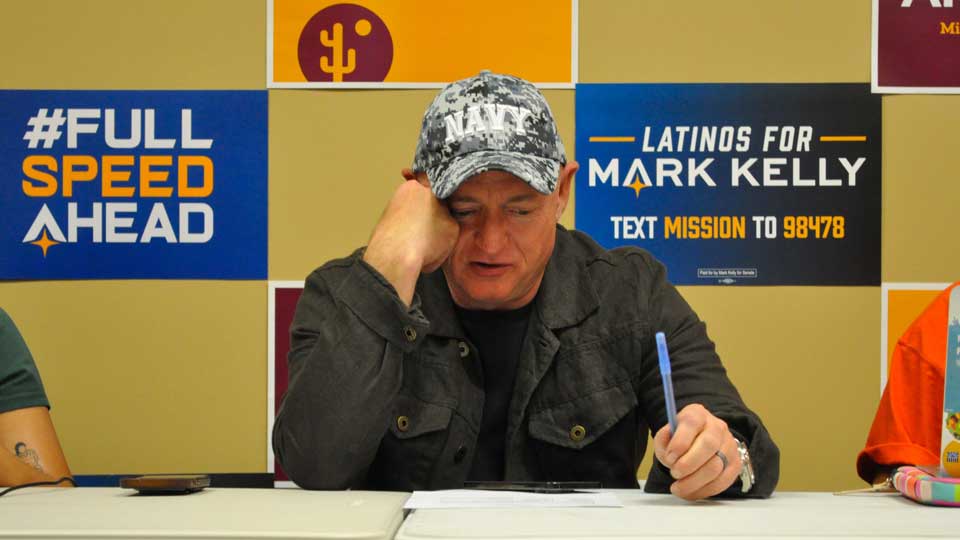
The Yuma sector -- the third-busiest crossing along the US-Mexico border -- became a point of political contention this summer when the Republican governor of Arizona, Doug Ducey, filled in the wall's gaps with stacks of shipping containers. However, even with the containers, large areas of the border remain unobstructed because of required access to agricultural lands and Native American territory. Ducey has continued to place the containers, which stand about 7 meters and are topped with barbed wire, in other areas of Arizona in Cochise County.
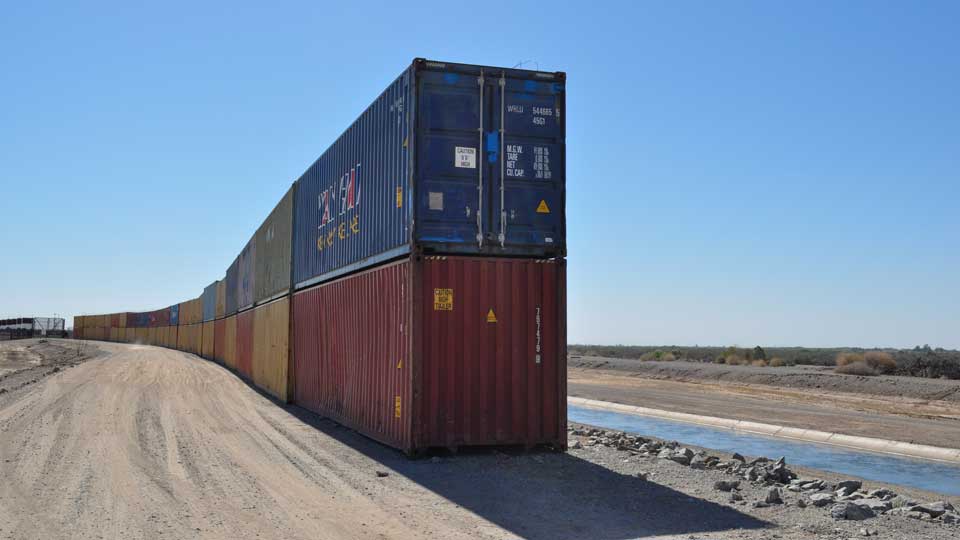
The federal government has ordered Ducey to remove the containers so the Customs and Border Protection workers can begin their own construction. The Biden administration had already planned to fill the same gaps in Yuma, spanning approximately 530 meters -- part of the initiative Senator Kelly takes credit for. In the US, it is the federal government's authority to enforce border security, meaning Biden's approval would be necessary to fund such a project. Kelly noted that "it took a while for the White House to agree to it."
The timed implementations of border construction around election cycles are "being played for politics," says Julia Gelatt of the Migration Policy Institute, a non-partisan think tank. "I think Senator Kelly really has to respond to the criticisms that he's facing and that the Democratic Party is facing on immigration. The residents of Arizona who live along the border are seeing migration in their daily lives. They're seeing the migrants cross and show up in their cities and really want to know what their politicians are doing about this."
This sentiment among Arizonans is shared across the country. In the runup to the midterms, 78 percent of voters said immigration was "a critical or important threat to the interests of the United States," according to a Gallup poll. The poll was fielded even while decades-high inflation impacted the US economy.
Mixed reactions
For those on the ground, the border wall remains controversial.
Fernando Quiroz is the director of the Arizona-California Humanitarian Coalition, an organization that responds to migrant crises. Quiroz, who offers food, water, and information about the detention process to migrants at the Yuma crossing, believes border barriers are ineffective at stopping the flow of migrants.
"A shipping container, the 'Trump fence,' fortifying our walls is not going to make a difference for the hunger. What they are fleeing is much greater than that," he says.
For more than a year, Quiroz has spent every day at the border from the middle of the night until daybreak. "[Migrants] will sacrifice. They will come with their children. They will come with a wife and newborns because where they're at is worse off," he says.
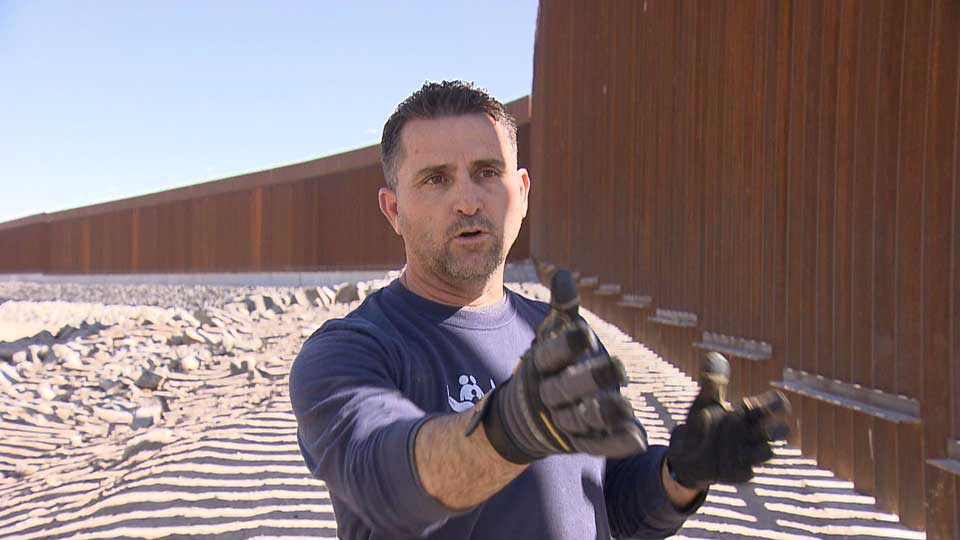
Other parts of the wall outside of Yuma are undergoing construction, including in the remote border town of Sasabe, where federal work from the Biden administration is being completed. With a humble population of 9, Sasabe's chief structures are a mustard yellow, catch-all general store, a post office -- and an extensive wall spanning the southwestern horizon. The Sasabe portion of the border lies in the Tucson sector, which is slated for "gap closure," according to documents from the CBP.
Others echo the idea that border security dominates elections to drum up votes. Myles Traphagen, a conservationist and biologist, has been monitoring multiple sections of the border since the start of the Trump administration in 2016, including in Sasabe. He says the border wall construction is a "politically motivated tool," -- one that Biden uses to support border-state Democrats but which was subtly announced to avoid alienating more liberal members of the party's base.
"Democrats are being forced into a situation where they appear to be soft on immigration, soft on crime if they don't support some aspect of building border walls," Traphagen says while standing between a large gap of the border wall. "So, in essence, the Republicans are controlling the argument right now. And the Democrats are really at a loss because they are not putting forth a strong solution to immigration problems."
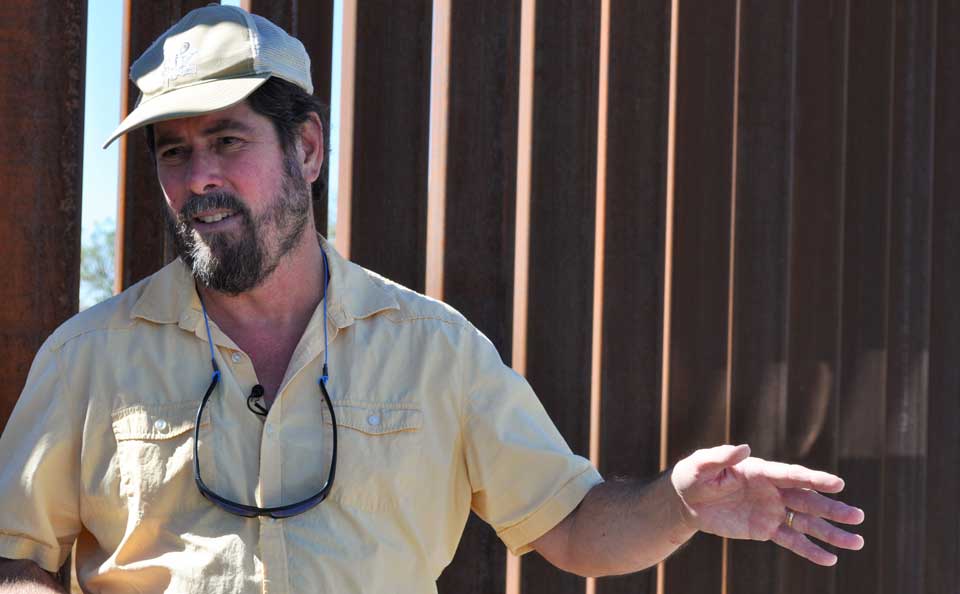
"Address the issue"
Back in Yuma, the sun hangs in the dry afternoon air. Quiroz stands on a dirt road looking over shipping containers at the border sitting next to the Colorado River. He says that whether it's the Republican governor placing shipping containers or the Biden administration filling gaps in the wall, these projects do not "address the issue," even as he acknowledged the need for border security.
"It's someone doing something along the border -- does it make a difference? Really, it does not," he says. "But that's the narrative that is pushed. So, this is policy. This is playing politics. And at the end of the day, the issue was still there. Asylum seekers will continue to come."
